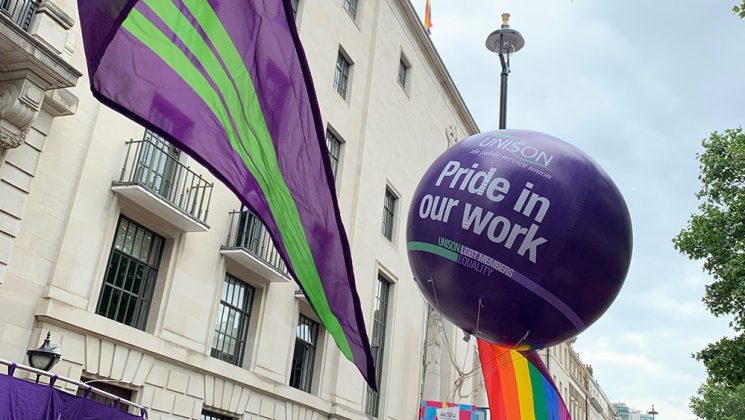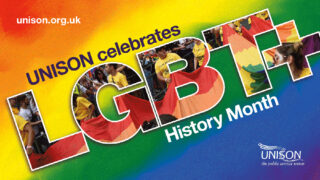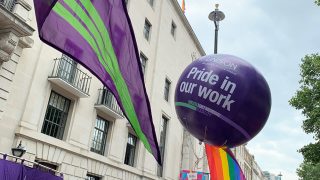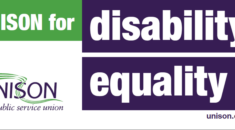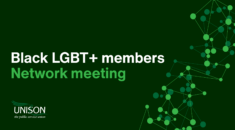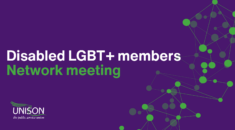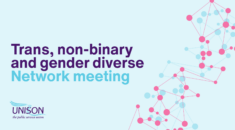In a world where nationalism and intolerance are rising and governments pander to reactionary views, a million and a half people hit the streets of London on Saturday to celebrate tolerance and diversity and thumb their noses at bigotry.
A UNISON delegation took part in the parade as London Pride cast a rainbow over the capital – marching (dancing) behind a samba band and welcomed by the enormous crowds at every stage along the route.

Getting the banner ready on Portland Place
Members were present from the West Midlands and there was another group in the parade from Homerton Hospital UNISON branch, carrying a message that migrants make our NHS.
Entirely unforecast rain made an effort to put in an appearance, but it wasn’t going to rain on our parade.

Ready to samba all the way to Westminster
Bathing in the extraordinary warmth of good feeling, it’s easy to forget that Pride is not just a party, but a thumbed nose at bigotry and a protest too.
This year is the 50thanniversary of the Stonewall riots. Police raids on gay bars were routine, but when the New York police raided the Stonewall Inn in Greenwich Village on 28 June 1969, they got more than they bargained for. Details remain fuzzy, what is known is that playing a leading role in the charge against police brutality that night were Black and transgender people.

Wow – look at the crowds on Regent Street!
Stonewall provided the kick start for the modern struggle for equal rights for LGBT+ people: on 28 June a year later, the first Pride marches were held in New York, Los Angeles and San Francisco.
Homophobic and transphobic crime have not gone away, despite all the progress that has been made.

Placard on the sultan of Brunei’s threat to stone LGBT+ people
Beyond UK shores, LGBT+ people continue to face state persecution. Earlier this year, Sultan Hassanal Bolkiah of Brunei announced he was introducing stoning to death for gay sex. Thanks to international outcry, he backed down and later pledged not to actually carry out any stonings.
Seventy two jurisdictions criminalise private, consensual same-sex sexual activity – mostly for men. Half of these are in the Commonwealth. Forty four jurisdictions do the same for women.
Twelve jurisdictions impose (or have the legal capacity to enact) the death penalty for private, consensual same-sex sexual activity. At least six are as good as their word – Iran, Northern Nigeria, Saudi Arabia, Somalia, Sudan and Yemen.
Fifteen jurisdictions criminalise the gender identity and/or expression of transgender people, using a variety of laws to punish those in drag or viewed as cross-dressing, from vagrancy to hooliganism and public order offences.
At the weekend, four LGBT+ Syrian refugees who had arrived in the UK just a couple of days earlier, were able to join Saturday’s Pride celebrations – finally able to express themselves openly.

Waiting to begin the parade
And on Sunday, continuing the union’s equalities work, UNISON took part in Black Pride UK, in East London, where the union held an event exploring the importance of trade unions, not least in the ongoing struggle for equality.

